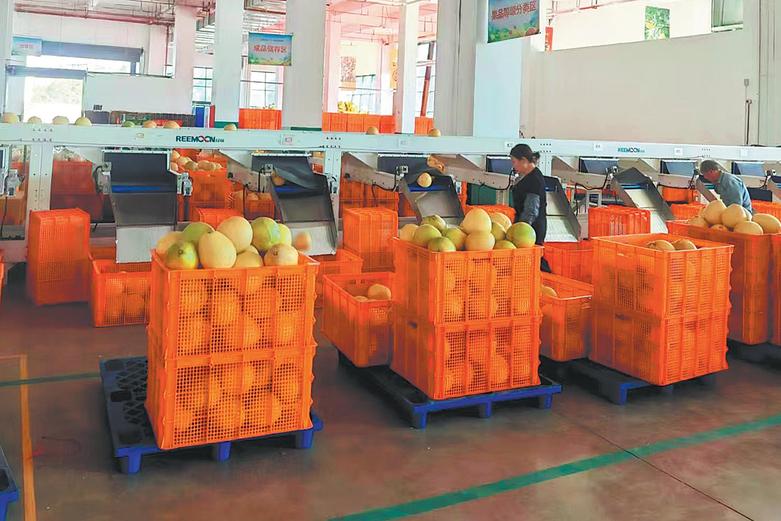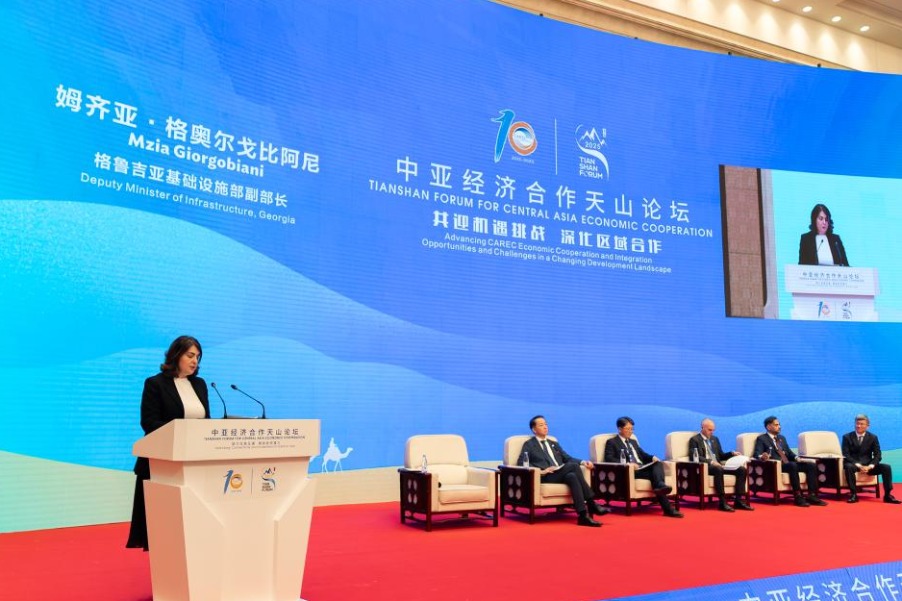Picking up the pieces for logistics players

Editor's note: With the onset of Sino-US friction and geopolitical tensions, global trade and supply chain operations have become fragmented. This in turn exerts far-reaching consequences on Hong Kong's trade and logistics business. In the first of a three-part series, we examine how the city's logistics sector can gear up to pursue development in high value-added services in both the aviation and shipping industries.
Hong Kong's sea and air freight sectors saw stark, divergent performances last year. Now the entire business is due for a huge shakeup. The disparity calls for more robust high value-added services in both industries. Oswald Chan reports.
The significant disparate throughput recorded in the sea and air cargo sectors in the Hong Kong Special Administrative Region in 2023 set off alarm bells in the city's trade and logistics operations.
Hong Kong was the world's busiest container port for much of the 1980s and 1990s - a position it held until 2005 - but ultimately dropped out of the top 10 busiest global port rankings for the first time last year. Hong Kong Port slipped to 11th place, according to shipping industry data provider Alphaliner. Its trade volume plunged 14.1 percent year-on-year to 14.3 million twenty-foot equivalent units amid growing competition from ports on the Chinese mainland, notably in adjacent Guangdong province.
The bleak picture painted for sea freight, however, was in stark contrast to the brilliant performance of the local air cargo business. Hong Kong International Airport (HKIA) has been the world's top cargo hub for 13 years, handling 4.3 million metric tons of freight in 2023 - up 3.2 percent from the previous year - Airports Council International said.
The performance discrepancy is attributed to the SAR's sustained advantages in offering prompt and efficient air cargo delivery services. In contrast, the sea cargo business relies more on freight charges than quality of service.
Ryan Ip Man-ki, vice-president and co-head of research at Our Hong Kong Foundation, hopes Hong Kong will concentrate on developing high value-added aviation and shipping services.
"Goods transported by air tend to be of higher value and time sensitive, requiring additional security arrangements and better time management. This creates greater opportunities for value-added logistics services," he explains to China Daily.
Sunny Ho Lap-kee, executive director of the Hong Kong Shippers' Council, agrees that the city should capitalize on its niche in the air cargo business. He is confident the SAR's status as an air cargo transportation hub can be secured as long as it continues to be a global finance, business and tourism hub.
With the expected completion of HKIA's three-runway system later this year, the airport could handle 10 million tons of cargo annually. Now that the aviation sector's staffing bottleneck created during the COVID-19 pandemic has been removed, airlines can expect upgraded services. Hong Kong's super-efficient airport operations and customs clearance have enabled air cargo to be delivered within a day, which may be a hurdle for mainland airports. The SAR is also open to various cargo transportation businesses, such as freight forwarders, warehouse operators, and inland transportation.
HKIA is the first airport in the world to attain the full suite of Center of Excellence for Independent Validators certifications from the International Air Transport Association for its handling of high-value goods including pharmaceuticals, perishables, live animals and lithium batteries.
But Ho warns Hong Kong must not become complacent. "If Hong Kong fails to maintain its superiority in air cargo transport, its edge in the industry may wane as competitors pull their socks up."
Eugene Wong Yin-cheung, associate professor and associate head at Hang Seng University of Hong Kong's Department of Supply Chain and Information Management, says even with a container terminal port and an efficient airport, Hong Kong should strive to be a multimodal transportation hub with complementary infrastructure, including roads, terminal ports and an airport.
Ip says the SAR's air-sea intermodal transshipment model can facilitate cargo flows in the 11-city cluster Guangdong-Hong Kong-Macao Greater Bay Area.
He adds, "As HKIA has the most international flight routes among airports in the GBA, the airport will be an effective air cargo transshipment hub for the region."
- Intl students showcasing global business acumen in Shanghai
- CPC expels former senior official of Guangxi
- Shanghai university unveils sustainable, efficient water treatment system
- Fire at auto business park in Jiangsu claims one life
- Magnitude 6.0 earthquake strikes Akqi county in Xinjiang
- Shenzhou XXI team to carry out first spacewalk





































